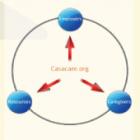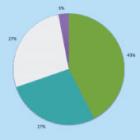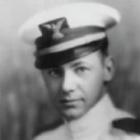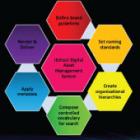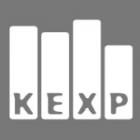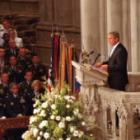Building the Bavarian Village: Creating a Finding Aid for the Price/Rodgers Leavenworth Collection Architectural Drawings
The mission of UW Special Collections is to provide access to its collections for academic and research purposes while also preserving and maintaining materials for long-term preservation. However, as a public institution with limited funding and staff, UW Special Collections has acquired a number of collections which have not been thoroughly processed, essentially rendering them inaccessible to users. One such collection is the Price/Rodgers Leavenworth Collection, which documents the efforts of Ted Price and Bob Rodgers to transform the Washington town of Leavenworth into a Bavarian village to increase tourism and revitalize its failing economy in the 1960s. My project—the creation of a finding aid—will make this collection both findable and searchable on the Special Collections website, thereby increasing access to the collection for the public, a benefit to both the user and the organization.

